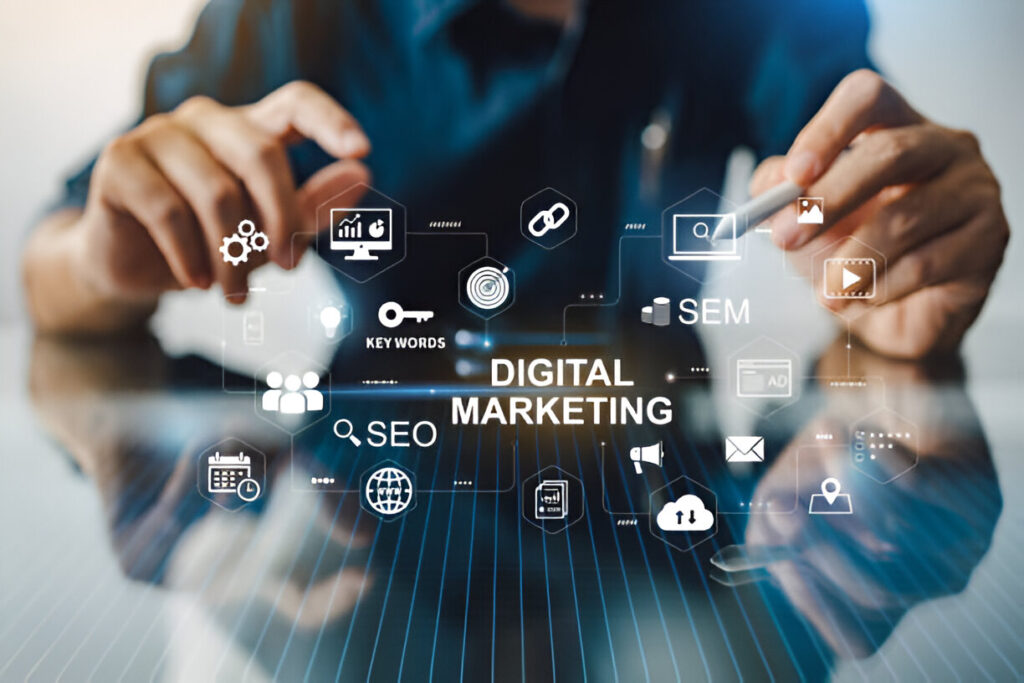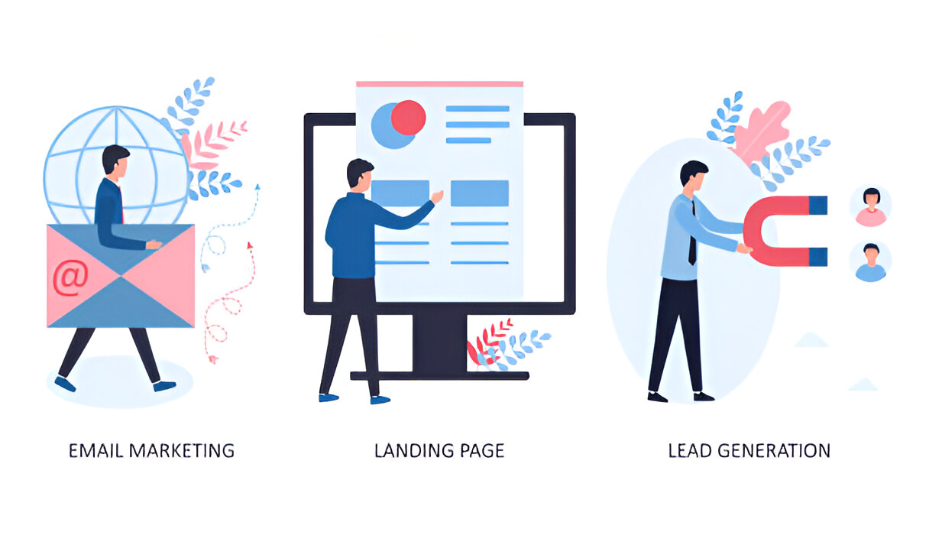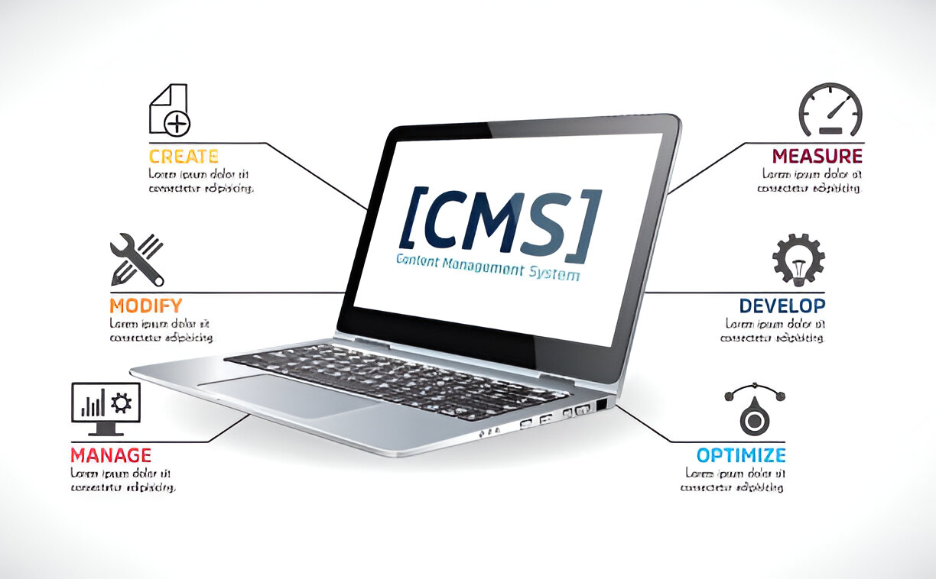
Digital marketing refers to the use of digital channels, such as websites, social media, search engines, email, and online advertising, to promote products or services. This strategy is designed to connect with potential customers where they spend a significant amount of their time: online.
The ultimate goal of digital marketing is to drive business growth by increasing visibility, engagement, and conversions.
At RISExDigital, we specialize in leveraging these digital channels to help your business thrive in the competitive online landscape. Our expertise in custom digital marketing strategies, effective SEO practices, and targeted paid advertising ensures that your brand stands out and reaches its audience effectively.
Digital marketing matters because it offers unique advantages over traditional marketing methods:
- Global Reach: Unlike traditional marketing limited by geography, digital marketing enables businesses to reach audiences worldwide.
- Cost Efficiency: Digital campaigns can be more cost-effective than traditional ones, providing a higher return on investment.
- Real-Time Interaction: Businesses can engage with their customers in real time through social media and other online platforms.
In this article, we will explore the different aspects of digital marketing and understand its significance in today’s business landscape. You will gain insights into key components like custom digital marketing strategies, effective SEO practices, and the role of paid advertising.
Are you ready to transform your business with powerful digital strategies? Keep reading to unlock the potential of digital marketing with RISExDigital.
Understanding Digital Marketing and Its Key Components
The Evolution of Digital Marketing
The journey of digital marketing can be traced back to the early days of the internet. Understanding its evolution provides a clearer perspective on how it has shaped today’s business landscape.
Key milestones in the evolution of digital marketing include:
1. 1990s: The Birth of the Internet
- The launch of the World Wide Web in 1991 marked the beginning of digital marketing.
- Early websites were basic, but they laid the groundwork for online advertising.
- Email campaigns started to emerge, offering a direct line to consumers.
2. Early 2000s: Search Engines and SEO
- Search engines like Google revolutionized how information was accessed.
- Businesses began optimizing their websites for search engines, giving birth to SEO (Search Engine Optimization).
- Pay-Per-Click (PPC) advertising models started gaining traction.
3. Mid-2000s: Rise of Social Media
- Platforms like Facebook, Twitter, and LinkedIn transformed how brands interacted with audiences.
- Social media marketing became a key component, emphasizing engagement and community building.
4. 2010s: Mobile and Content Marketing Explosion
- The proliferation of smartphones accelerated mobile marketing strategies.
- Content marketing emerged as a vital tool, focusing on creating valuable and relevant content to attract audiences.
5. 2020s: Data-Driven Marketing and AI Integration
- Advanced analytics and AI technology are now central to personalized customer experiences.
- Automation tools streamline campaigns, making them more efficient and effective.
The role played by the internet revolution in shaping digital marketing includes:
- Accessibility: The internet has made information readily accessible to billions worldwide. This democratization has leveled the playing field for businesses of all sizes.
- Interactivity: Unlike traditional media, digital platforms allow real-time interaction between brands and consumers. Social media channels exemplify this shift towards two-way communication.
- Data Availability: The internet provides an abundance of data that can be analyzed to inform strategies. Tools like Google Analytics offer insights into consumer behavior.
Website Marketing and Search Engine Optimization (SEO)
Websites are often considered the cornerstone of digital marketing efforts. They serve as a central hub where customers can learn about products or services, make purchases, or find contact information.
Effective strategies for website marketing include:
- User Experience (UX) Design: Ensuring your website is user-friendly enhances visitor retention and conversion rates.
- Responsive Design: With mobile usage surpassing desktop, having a responsive design is crucial for accessibility across devices.
Overview of effective SEO strategies:
- Keyword Research: Identifying relevant keywords that potential customers use in search queries is foundational. Tools like Ahrefs or SEMrush assist in discovering these keywords.
- On-page Optimization: Implementing keywords naturally within content, meta descriptions, headers, and URLs improves visibility in SERPs (Search Engine Results Pages).
- Content Quality: High-quality content that answers user queries can boost rankings. Blogging is an effective way to continually update your site with fresh content.
- Backlink Building: Acquiring backlinks from reputable sources signals credibility to search engines. Guest blogging or partnerships help in earning these links.
- Technical SEO: Ensuring your website’s backend is optimized for speed, security (HTTPS), and crawlability by search engines enhances its performance.
Social Media Marketing and Content Strategy
Social media platforms offer powerful tools for engaging with audiences and building brand presence. Each platform has its unique strengths:
- Facebook: Ideal for community building and targeted advertising with detailed demographic options.
- Twitter: Great for real-time updates and customer service interactions.
- Instagram: Visual-centric platform perfect for showcasing products through images and videos.
- LinkedIn: Professional networking platform suitable for B2B marketing and industry thought leadership.
Effective content strategies on social media include:
- Understanding Your Audience: Research and identify the preferences, interests, and pain points of your target audience to create content that resonates with them.
- Consistency: Regularly posting content helps maintain visibility and engagement with your audience. Use social media scheduling tools to plan ahead.
- Visual Appeal: Utilize high-quality images, videos, infographics, and other visual elements to make your content more appealing and shareable.
- Hashtags: Research relevant hashtags in your industry or niche and incorporate them into your posts to increase discoverability.
- Engagement: Actively respond to comments, messages, and mentions from your audience to foster a sense of community and build relationships.
- Influencer Partnerships: Collaborate with influencers or industry experts who align with your brand values to amplify your reach and credibility.
Remember, it’s important to tailor your content strategy based on the platform you’re using and the preferences of your target audience.

The Importance of Digital Marketing in Today’s Business Landscape
Importance of Digital Marketing cannot be overstated in today’s interconnected world. Businesses need to leverage digital marketing strategies to stay competitive and thrive. Here are some key reasons why:
- Global Reach
Unlike traditional marketing, digital marketing allows businesses to reach a global audience with minimal effort. Online platforms break geographical barriers, enabling firms to tap into new markets around the world.
- Cost Efficiency
Digital marketing tends to be more cost-effective than traditional methods. Tactics like email campaigns, social media advertising, and SEO offer a higher return on investment (ROI) by targeting specific audiences and minimizing wasted expenditure.
- Real-Time Customer Interaction
Digital channels enable immediate engagement with customers. Social media platforms, live chats, and interactive content provide opportunities for real-time interaction, enhancing customer satisfaction and loyalty.
- Data-Driven Decision Making
Advanced analytics tools help track customer behavior and campaign performance. This data-driven approach allows for continuous optimization of digital strategies, ensuring more effective and efficient marketing efforts.
Current trends underscore the Growth and Projection of the digital marketing industry:
- Increased Mobile Usage
With the proliferation of smartphones, mobile marketing is on the rise. Businesses are optimizing their websites and ads for mobile devices to capture this growing segment.
- Voice Search Optimization
The advent of voice-activated assistants like Alexa and Siri has led to a surge in voice search queries. Companies are adapting their SEO strategies to include voice search optimization.
- Personalization at Scale
Personalization is becoming crucial in digital marketing. Tailoring content and ads based on user preferences and behaviors leads to higher engagement rates and conversions.
- Integration of AI and Machine Learning
Artificial Intelligence (AI) and Machine Learning (ML) are transforming how marketers analyze data and predict consumer behavior. These technologies facilitate more precise targeting and automated decision-making processes.
Businesses that adapt to these trends are poised for success in the ever-evolving digital landscape. By embracing the power of digital marketing, companies can not only maintain their competitive edge but also achieve sustainable growth in an increasingly digital-driven world.
Overcoming Challenges in a Digital World
Digital marketing has its own set of challenges that need careful handling. One of the main issues is the constant emergence of new platforms and tools. It can feel overwhelming to keep up with these changes and effectively use each channel.
Dealing with Multiple Online Channels
Managing multiple online channels well requires a coordinated approach. Here are some key strategies:
- Prioritize Channels: Focus on platforms where your audience is most active. For example, B2B companies might prioritize LinkedIn, while B2C brands may find more success on Instagram or TikTok.
- Create Integrated Campaigns: Ensure consistency across all channels by developing integrated campaigns that deliver a unified message.
- Use Automation Tools: Take advantage of automation tools like HubSpot or Hootsuite to schedule posts and manage interactions efficiently.
Handling Complex Data Analysis
Another major challenge is dealing with the complexity of data analysis. With large amounts of data being generated every day, it can be overwhelming to extract meaningful insights.
To tackle this challenge effectively:
- Use Advanced Analytics Platforms: Make use of platforms like Google Analytics or Tableau to understand data trends and performance metrics.
- Break Down Data into Segments: Divide the data into smaller, meaningful segments to gain better insights into different customer behaviors and preferences.
- Keep Learning: Stay updated with the latest analytical methods and tools through continuous learning and professional development.
Grabbing Consumer Attention
Standing out in a crowded digital space requires both creativity and precision. Consumers are constantly bombarded with content, making it difficult to capture their attention.
Strategies to overcome this include:
- Personalize Your Marketing: Use personalized marketing techniques to tailor content specifically to individual preferences. Tools like Mailchimp can help personalize email campaigns based on user behavior.
- Focus on Quality Content: Invest in creating high-quality, engaging content that resonates with your audience. This could include blog posts, videos, infographics, or interactive media.
- Collaborate with Influencers: Partner with influencers who share your brand values to reach a wider audience in an authentic way.
Navigating these challenges requires a combination of:
- Strategic planning
- Advanced tools
- Continuous adaptation to the ever-changing digital landscape
Developing the Right Skills for Digital Success
Aspiring digital marketers need a diverse skill set to navigate the complexities of modern digital marketing. Mastering these skills can set you apart in a competitive landscape and help drive measurable results for your business.
Writing Compelling Content
Effective content writing is the cornerstone of any successful digital marketing strategy. You must be able to create engaging, informative, and persuasive content that resonates with your audience. This involves:
- Understanding your target audience’s needs and preferences
- Crafting clear and concise messaging
- Utilizing SEO best practices to enhance content visibility
Navigating Social Media Dynamics
Social media management is another critical component. Platforms like Facebook, Twitter, LinkedIn, and Instagram offer unique opportunities to engage with audiences. Essential skills include:
- Content Creation: Tailoring content for different platforms
- Community Engagement: Responding to comments and messages timely
- Analytics: Monitoring performance metrics to refine strategies
Interpreting Data Insights
Data analytics plays a vital role in measuring the effectiveness of digital marketing efforts. You need proficiency in:
- Tracking Metrics: Understanding key performance indicators (KPIs) such as click-through rates (CTR), conversion rates, and ROI
- Using Tools: Familiarity with tools like Google Analytics, SEMrush, or HubSpot
- Data Interpretation: Analyzing data trends to make informed decisions
Key Insight: Data-driven strategies allow for continuous optimization of campaigns, ensuring resources are used efficiently.
Mastering these essential skills empowers you to craft effective digital marketing strategies that drive growth and success.
The Advantages of Going Digital
Digital marketing offers an array of unique benefits that can propel your business forward. Leveraging the power of digital channels can transform how you connect with your audience, making it easier to reach new customers and deepen relationships with existing ones.
- Global Reach through Accessible Online Platforms
One of the standout advantages of digital marketing is its ability to provide a global reach. Unlike traditional marketing methods, which may be confined by geographical limitations, digital platforms allow you to connect with potential customers worldwide. This accessibility opens up new markets and opportunities for growth that were previously unattainable.
- Cost-Effectiveness Compared to Traditional Tactics
Digital marketing often proves to be more cost-effective than traditional marketing strategies. Here’s why:
- Lower Costs: Running a digital campaign typically requires less financial investment compared to print, television, or radio advertisements.
- Higher ROI: Digital marketing allows for precise targeting, ensuring your advertising budget is spent reaching the most relevant audience. This targeted approach often results in higher returns on investment.
- Opportunities for Real-Time Customer Interaction
Engaging with customers in real-time is another significant advantage offered by digital marketing. Through various online channels, businesses can interact directly with their audience, addressing questions, concerns, and feedback immediately. This real-time engagement boosts customer satisfaction and helps build trust.
Examples of Real-Time Engagement Tools:
- Live Chat: Enables instant communication between customers and support teams.
- Social Media Platforms: Facilitate immediate responses and interactions through comments and direct messages.
- Email Marketing: Allows for prompt replies to customer inquiries.
- Increased Engagement through Interactive Content
Interactive content is a powerful tool in digital marketing strategies. By creating engaging content such as polls, quizzes, videos, and infographics, you can capture the attention of your audience more effectively. This increased engagement not only helps to convey your message but also encourages users to share your content, expanding its reach.
Interactive Content Examples:
- Quizzes: Encourage users to participate and share results.
- Videos: Offer dynamic storytelling opportunities that captivate viewers.
- Infographics: Provide visually appealing ways to present complex information.
- Building Customer Loyalty Through Personalization
Personalization is at the heart of effective digital marketing. Tailoring your messages and offers based on individual customer preferences drives higher engagement rates and fosters long-term loyalty. Personalized experiences make customers feel valued and understood, leading to stronger connections with your brand.
How Personalization Enhances Customer Loyalty:
- Customized Email Campaigns: Segmenting your email list allows you to send tailored messages that resonate with specific groups within your audience.
- Retargeting Ads: Display ads that reflect products or services previously viewed by a user, keeping them engaged and encouraging conversions.
- Content Recommendations: Use data analytics to suggest relevant content based on user behavior and interests.
By leveraging these personalization tactics, businesses can create meaningful interactions that enhance customer satisfaction and loyalty.
The benefits of digital marketing are clear: global reach, cost-effectiveness, real-time interaction capabilities, increased engagement through interactive content, and the ability to build lasting customer loyalty through personalization strategies. Embrace these advantages to stay competitive in an ever-evolving digital landscape.
Conclusion:
In today’s fast-paced digital world, embracing digital marketing is essential for driving business growth and staying ahead of the competition. From harnessing the global reach of online platforms to leveraging cost-effective strategies, digital marketing offers unparalleled opportunities to connect with your audience and achieve your business objectives.
At RISExDigital, we are dedicated to helping your business navigate the complexities of digital marketing with tailored solutions designed to meet your specific needs. Our expertise in developing custom strategies, optimizing SEO, and managing effective digital campaigns ensures that your brand stands out in the crowded online space.
Ready to transform your business with powerful digital strategies? Contact us today to discover how RISExDigital can help you unlock the full potential of digital marketing for your growth and success.




